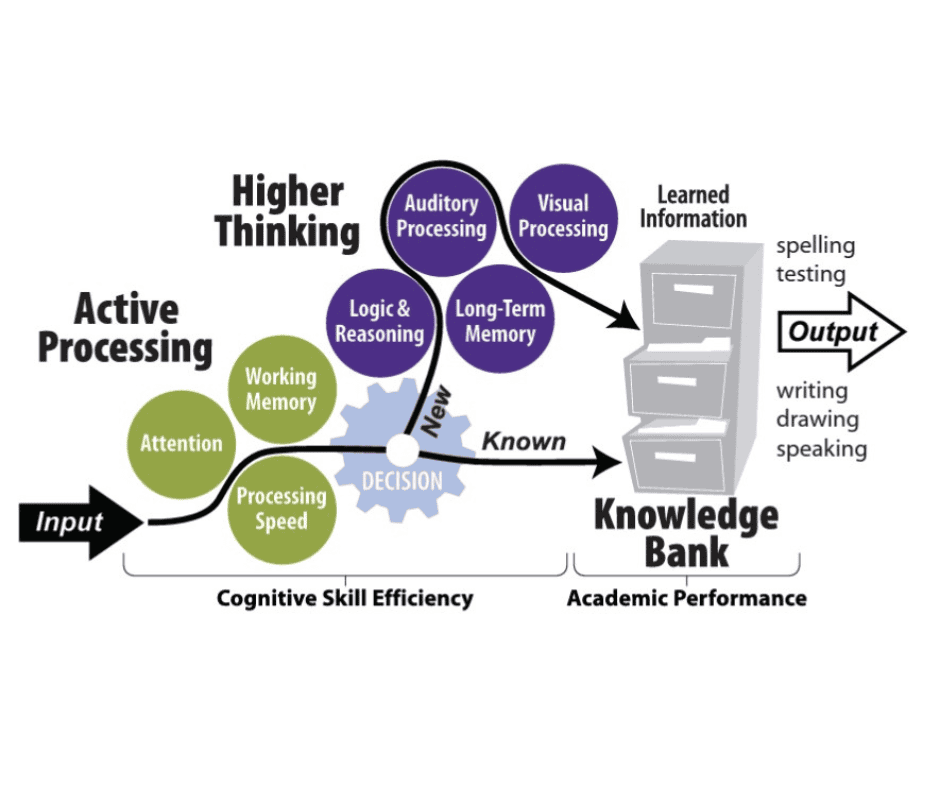Solving Test-Taking Challenges: Is It An Issue With Their Knowledge Bank or Executive Functioning Skills?
For many students, test-taking is a source of anxiety and frustration. Some struggle to recall the information they studied, while others find it difficult to organize their thoughts, manage time, or stay focused during the exam. If your child is facing consistent challenges with tests, the root cause could lie in either their knowledge base or executive functioning skills—or sometimes both. Understanding these two distinct areas is key to providing the right support.
Knowledge Deficits: When the Information Isn’t There
A student’s “knowledge bank” refers to the information they have acquired and stored in their memory. If a student struggles to answer test questions, it may be because they haven’t fully learned or retained the material. Signs of a knowledge deficit might include:
- Difficulty explaining concepts in their own words.
- Poor performance on homework or class assignments.
- Inability to connect new information to prior knowledge.
- Reliance on rote memorization rather than understanding.
Why It Happens:

When students learn, the brain goes through a complex network of cognitive skill tasks in order to store new information in the knowledge bank. As you can see from the image above, there are many different areas where deficits could prevent new information from being stored effectively (or recalled correctly). Weaknesses in any one of these cognitive skills can prevent accurate knowledge bank storage either because the information wasn’t processed correctly OR it got lost along the way.
In addition to cognitive processing weaknesses preventing accurate learning, other causes of knowledge bank-related issues with test-taking could be:
- Gaps in foundational knowledge from previous grades.
- Ineffective study habits or lack of study strategies.
- Specifically, weak long-term or working memory, making it harder to retain or retrieve information.
Executive Functioning Weaknesses: The “How” of Test-Taking
Executive functioning skills are like the brain’s command center. They help a student plan, organize, prioritize, and manage their time. A student with executive functioning weaknesses may understand the material but still struggle with test-taking because they can’t effectively demonstrate what they know. Signs of executive functioning deficits include:
- Trouble managing time during tests.
- Difficulty prioritizing which questions to answer first.
- Losing focus or getting stuck on one problem for too long.
- Struggling to follow multi-step directions.
- Making careless errors due to rushing or lack of review.
Why It Happens:
- Developmental delays or neurodivergent conditions like ADHD that make complex executive functioning tasks more challenges.
- Stress or anxiety that impacts cognitive efficiency.
- Lack of practice with skills like time management or test strategies.
How Brain Training Can Help
Whether the challenge lies in knowledge deficits or executive functioning, brain training can address the root causes and help students feel more confident in their test-taking and academic journey.
Strengthening the Knowledge Bank
Brain training programs focus on cognitive skills like memory, attention, and processing speed—skills critical for acquiring, retaining, and recalling learned information. Through targeted exercises, students can improve their ability to:
- Retain information in both short-term and long-term memory.
- Process new information more quickly and accurately.
- Understand and integrate complex concepts and problem-solve more effectively.
Improving Executive Functioning
Brain training also targets the cognitive skills that underpin executive functioning, such as working memory, logic and reasoning, and attention. By strengthening these skills, students can learn to:
- Organize their thoughts and plan their approach to tests.
- Stay focused and manage time effectively during exams.
- Tackle multi-step problems with greater ease.
- Shift between tasks or questions without losing momentum.
Addressing Test-Taking Challenges Starts With the Brain
If your child’s test-taking struggles are holding them back, it’s important to first identify the underlying cause. A cognitive skills assessment can pinpoint whether the issue is rooted in knowledge deficits, executive functioning weaknesses, or a combination of both. Once you understand the “why,” you can address the challenges more effectively.
At LearningRx, our brain training programs are designed to strengthen the core cognitive skills that impact both learning and test-taking. With customized one-on-one training, students can build the tools they need to tackle tests with confidence and perform to their full potential.
Ready to learn more? Use the link below to get started today!
The results shared in this article are from surveys, studies, and outcomes of past clients. Every brain is different so individual outcomes may vary, but you can read our full client outcomes and research report here if you want to learn more!







